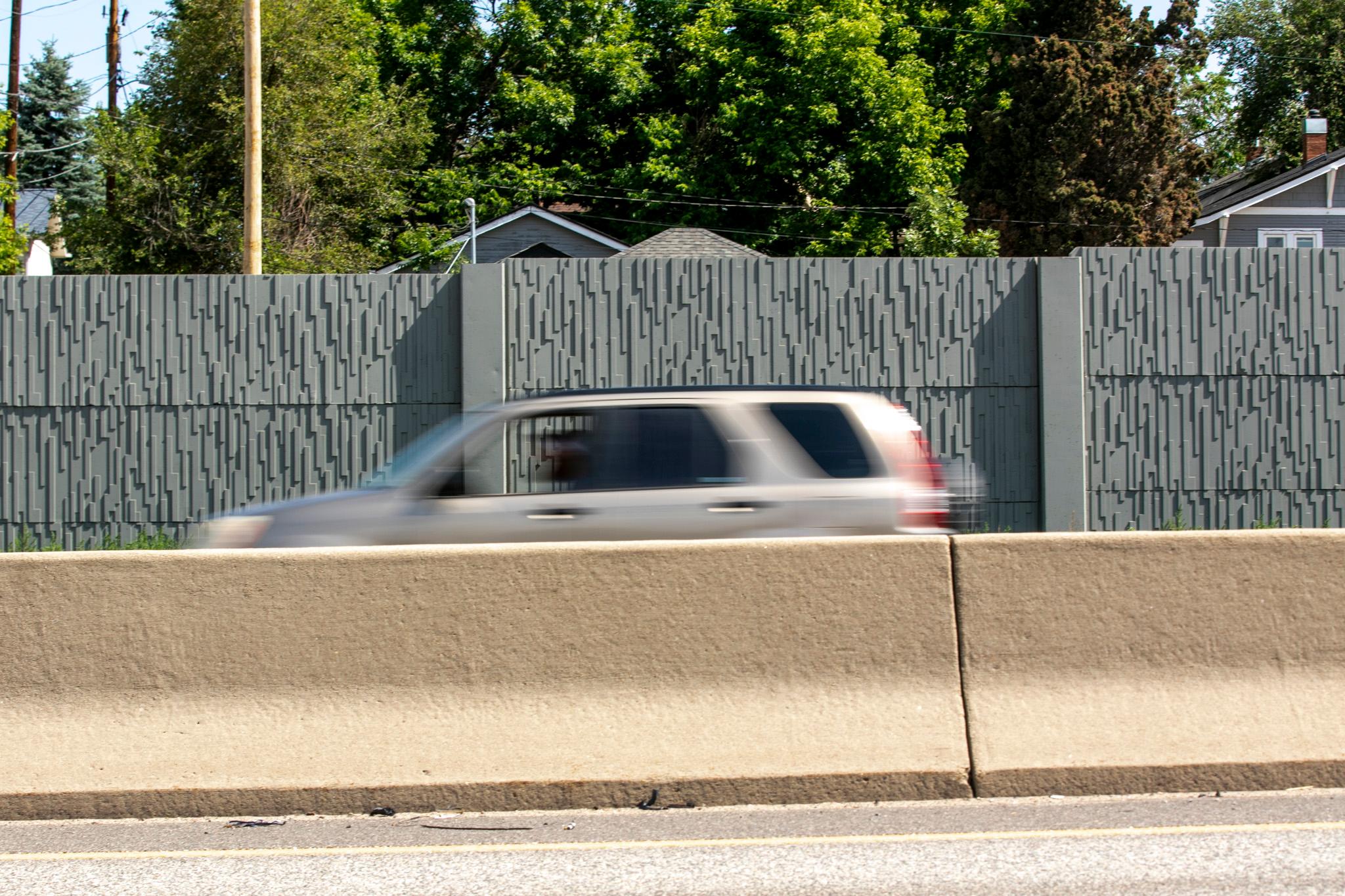When the state of Colorado built Interstate 70 through northwest Denver in the 1960s, it added a nice touch for the neighbors: miles of tall wood fencing to soften the sound of all that new traffic.
That same wood fence — nearly eight miles of it, counting both sides of the freeway— was still standing more than a half-century later. Well, kind of standing.
“It did its best for the life of the fence, right?” joked Jessica Myklebust, regional transportation director for the Colorado Department of Transportation.
Over the years, the old timber grew warped and broken, stained and tired. Long stretches were replaced with mismatched new paneling — a fence of Theseus situation. But still it persisted, a low-grade eyesore for nearby neighborhoods and tens of thousands of commuters.
“Imagine you put a fence at your house in 1960,” Myklebust said. “It's probably not in the best condition and needs to be repaired.”
Well, the I-70 sound wall is getting more than a repair. Construction crews have been ripping out the old timber fence for months now and grinding the fragile old boards to dust.
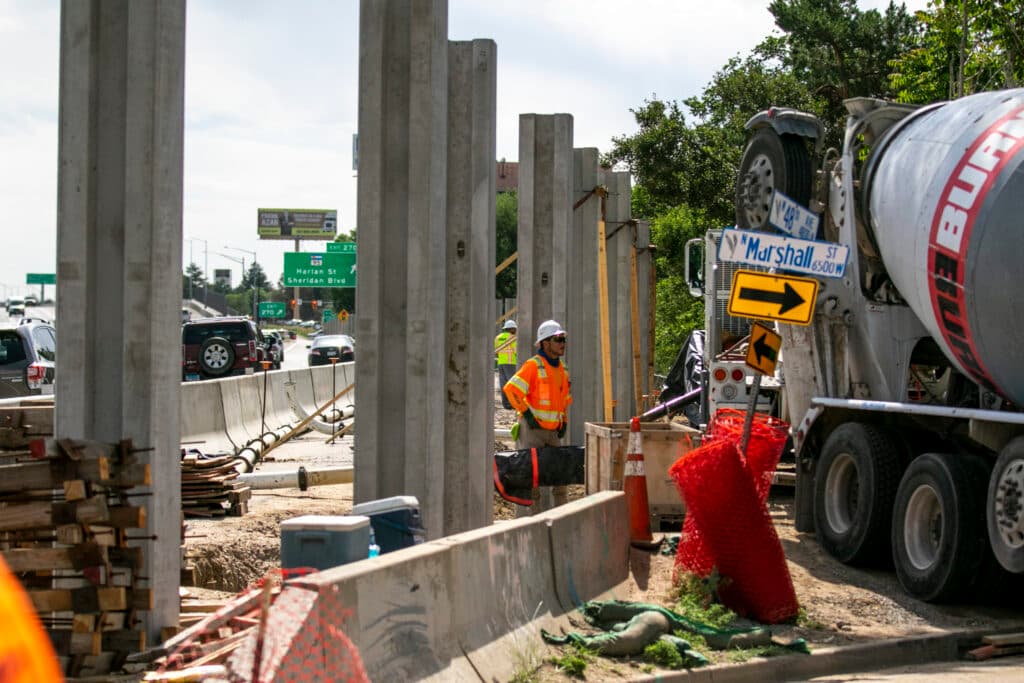
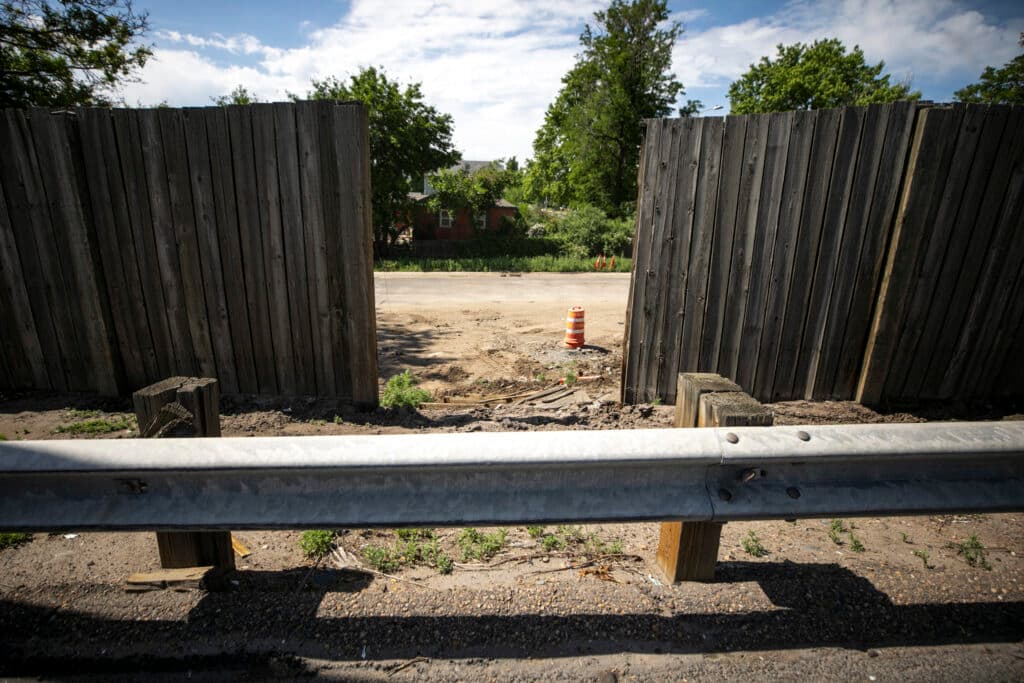
In their place is rising the great sound wall of Denver — another eight-mile barrier, this one made of taller, sturdier precast cement panels.
“It's 160,000 square feet of concrete wall panels, which require 800 [sets of] caissons and posts,” Myklebust said. “So if you've been driving the corridor, that is a lot of construction.”
That’s about 3.7 acres of concrete, enough to cover a couple of blocks of downtown. And it’s not cheap. In all, the project is slated to cost nearly $27 million, covering the replacement of all walls on the stretch between the highway’s intersection with Pecos Street in Denver and Interstate 76 in Arvada.
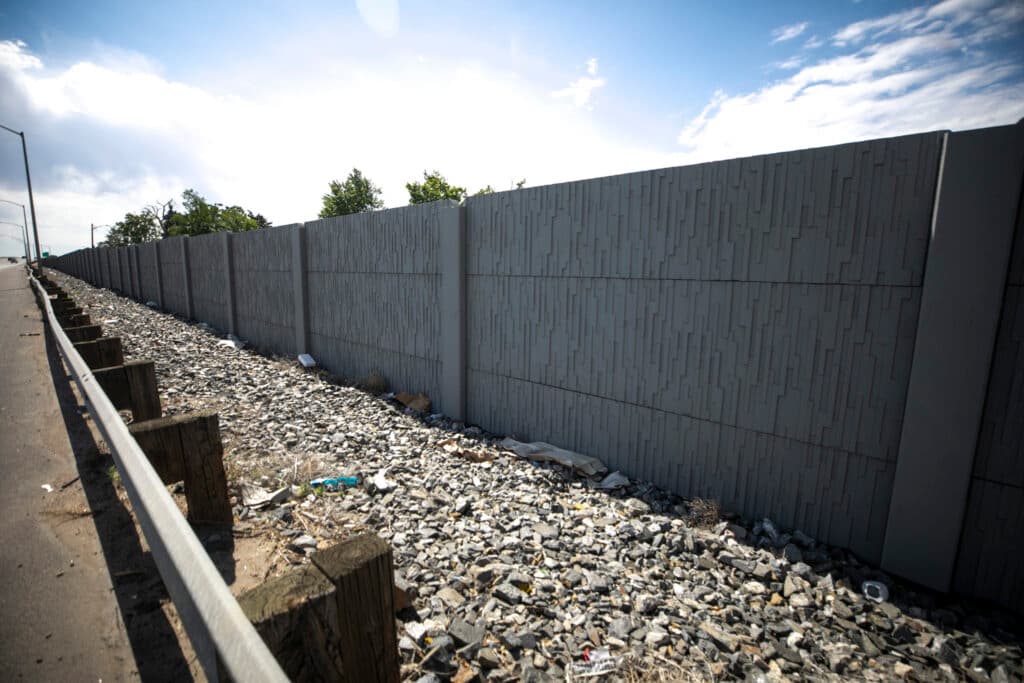
The new wall should block more sound, dust and pollutants for the residential neighborhoods that line the highway, Myklebust said. One study found that timber barriers tend to let through the most annoying low-frequency noises, while concrete barriers “had the largest noise reduction at low frequencies and “the lowest annoyance scale value.”
Some sections are already finished, including an earlier 2022 project focused on a smaller subsection near Tennyston Street. The larger, current project began in March 2024 and won’t wrap up until late in 2026.
“You've got adjacent residences that are really close. You're working with the property owners to get easements from them. We had to do a lot of utility relocations. The highway is a really convenient place to put utilities, since there aren't many underground obstructions,” Myklebust said. “And in the particular case of I-70, some of those utilities have been in place for 50 or more years. … They haven’t been mapped.”
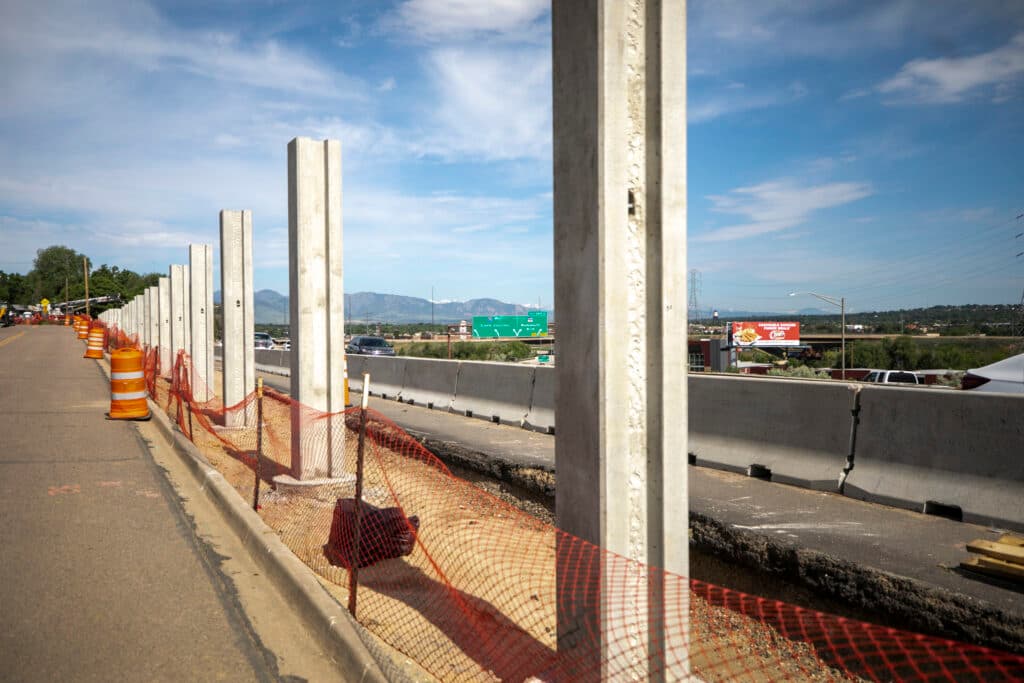
The project also included the construction of new swales and ditches to handle runoff, along with the rehabilitation of existing drainage systems. Work is largely done on the north side, with crews now making their way along the south side of the highway.
Kelly Kyger has lived on the south side of the highway for decades, the dull roar of the interstate slowly fading into the background of her life.
“After 36 years, you're kind of used to it,” she said. The construction project has actually made it worse, for now, because crews removed the old timber fence and haven’t yet installed the new panels.
But “hopefully it'll make a difference, because there's been a lot of dust the whole time living here from the highway,” she said. She hasn’t worried too much about the highway’s health impacts, she added, because she is a smoker.
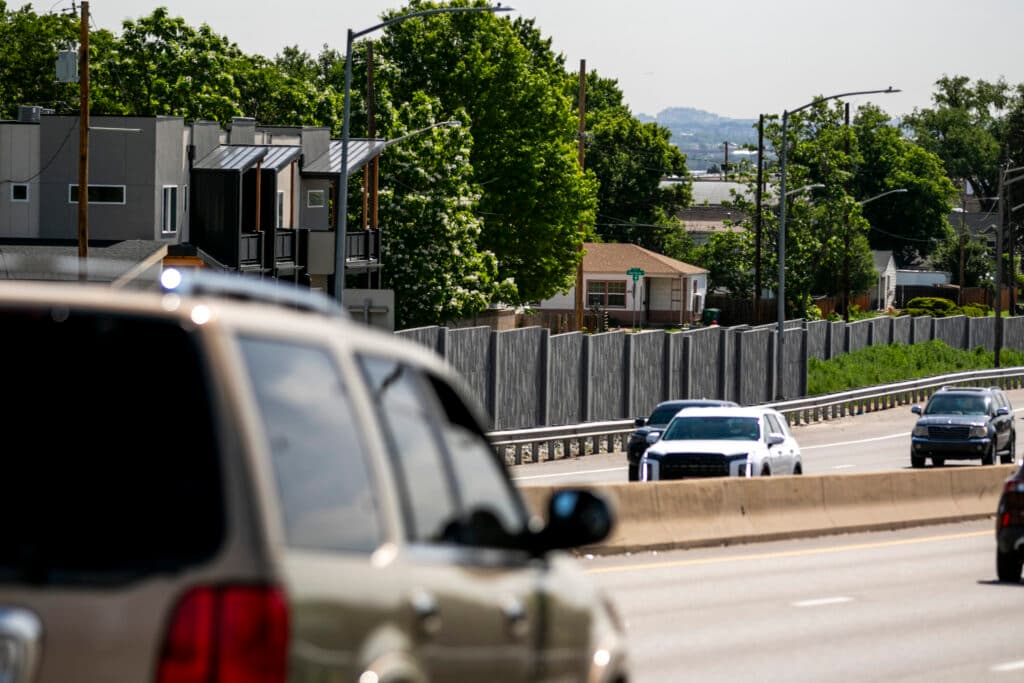
The project was paid for with nearly $10 million in federal pandemic relief money, as well as state funding. It also includes the replacement of all of the freeway’s guardrails and barriers in the corridor; separately, CDOT has resurfaced the highway, bringing it to nearly “brand new” status, Myklebust said.
As for the old timber? It was too fragile to transport, so it was milled on site and likely used as fill. Ashes to ashes, dust to dust, sound wall to sound wall.
Have you noticed an impact in your neighborhood? Got a question about Denver? Email us.

